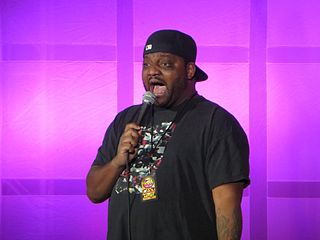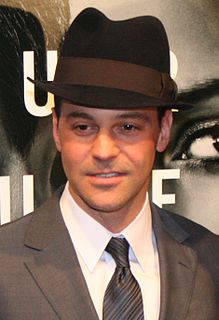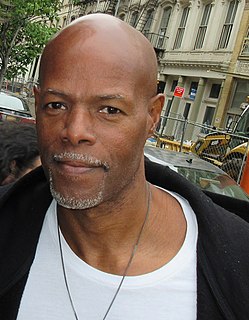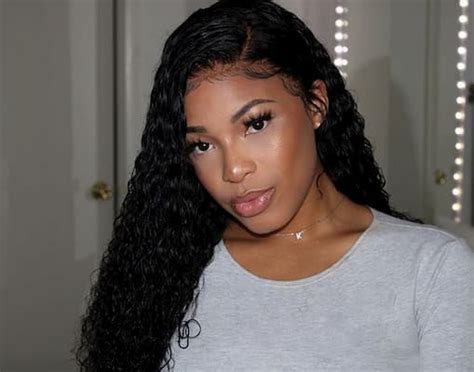A Quote by Matthew Zapruder
I'm more than a little suspicious of humor in poems, because I think it can at times be a way of getting a reaction out of a reader, or an audience, that is something closer to relief: i.e., thank god this isn't poetry, but stand-up comedy. Some poets are really funny, but more often poets are fourth rate stand up comics at best. But they benefit from the sheer relief of the audience.
Related Quotes
I tend to like the way poets form communities. Writing can be lonely after all. Modern life can be lonely. Poets do seem to be more social than fiction writers. This could be because of poetry's roots in the oral tradition - poetry is read aloud and even performed. I'm just speculating, of course. At any rate, because poets form these groups, they learn from one another. That is one of the best things about being a poet.
If you tell the reader it's funny, then the audience is like an audience at a stand-up comedy club and they expect you to be funny, and if you're not, they notice. Whereas if you read a regular op-ed about Israel or the family or medicine, you're not starting with the assumption that you're supposed to laugh.
Stand-up is an art but since it's humor and it's funny - a lot of guys that don't think it's art are probably coming from the angle that they don't want to take it so seriously. I've always looked at it as an art but I don't look at it as a pretentious art. I understand it has to be taken lightly because it is just comedy in the end, but the good stand-up comics are someone with something to say.
That being said, some of my favorite poets are extremely funny. The aforementioned Matt Rohrer, for instance. Mary Ruefle. James Tate might be the best example of someone who is systematically misread because he can be hilarious. In his poems, as in all great funny poems, the humor is one very appealing version of the surprise and associative movement that is at the heart of all poetry.
Now obviously popularity isn't everything when it comes to stand up comedy, but the art form itself is better today than it ever has before. I think there are more great comics. I think the standard is higher. The critical analysis is a little harsher, but that is also good. Maybe people have a higher standard than before, maybe they are a little more judgmental, a little more brutal, that makes people work harder. It makes the stand up better.
I think that the casual reader and the lyric and confession are trickily tied up together. I mean often when I read my students' poems my first impulse is to say, "O, the subject of this pronoun, this 'I,' is whatever kid wrote this poem." The audience for lyric poems is "confessionalized" to some extent. And I think this audience tends to find long narrative poems, for instance, kind of bewildering.
Comedy can be more difficult than drama. It requires more attention to timing. In the theater, you're always dependent on the audience for the energy, but in comedy the feedback you get is more important. You can judge by the quickness and the length of the laugh just where you stand with the audience.
After all, poets shouldn't be their own interpreters and shouldn't carefully dissect their poems into everyday prose; that would mean the end of being poets. Poets send their creations into the world, it is up to the reader, the aesthetician, and the critic to determine what they wanted to say with their creations.
I've always been more than a little mystified by poets who seem to think talking to people as directly as possible is a bad thing. I mean, I don't want to set up a straw man here: I understand that for many poets - and for me, at times - writing truly means writing in a way that is difficult, simply because the poem is trying to grasp for something elusive. So the difficulty of the poem is just unavoidable, and not in any way artificially imposed. So "as possible" is the key part of the phrase above, I suppose.
I enjoy it all: performIng, doing TV, movies, comedy, drama, stand-up, animation voicework, singing, but you get that instant gratification from stand-up because it's your own commentary and you get to see the reaction from the audience that's right there in front of you. I also love coming up with characters and watching people embrace them and enjoy them.
The beautiful thing about podcasting is it's just talking. It can be funny, or it can be terrifying. It can be sweet. It can be obnoxious. It almost has no definitive form. In that sense it's one of the best ways to explore an idea, and certainly much less limiting than trying to express the same idea in stand up comedy. For some ideas stand up is best, but it's really, really nice to have podcasts as well.




































